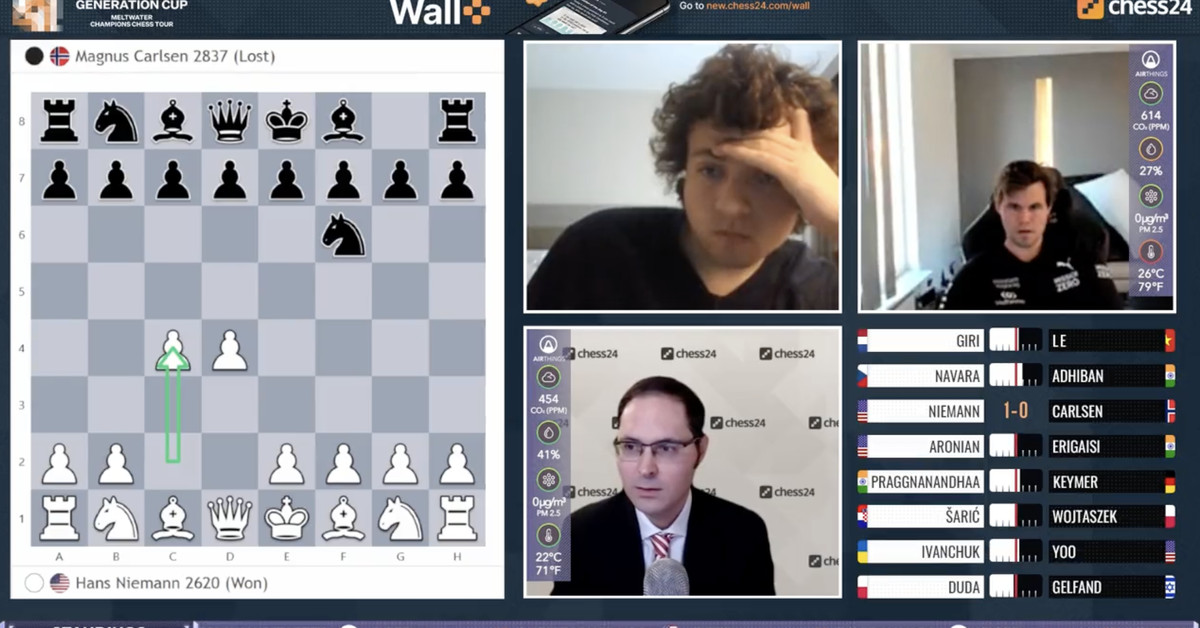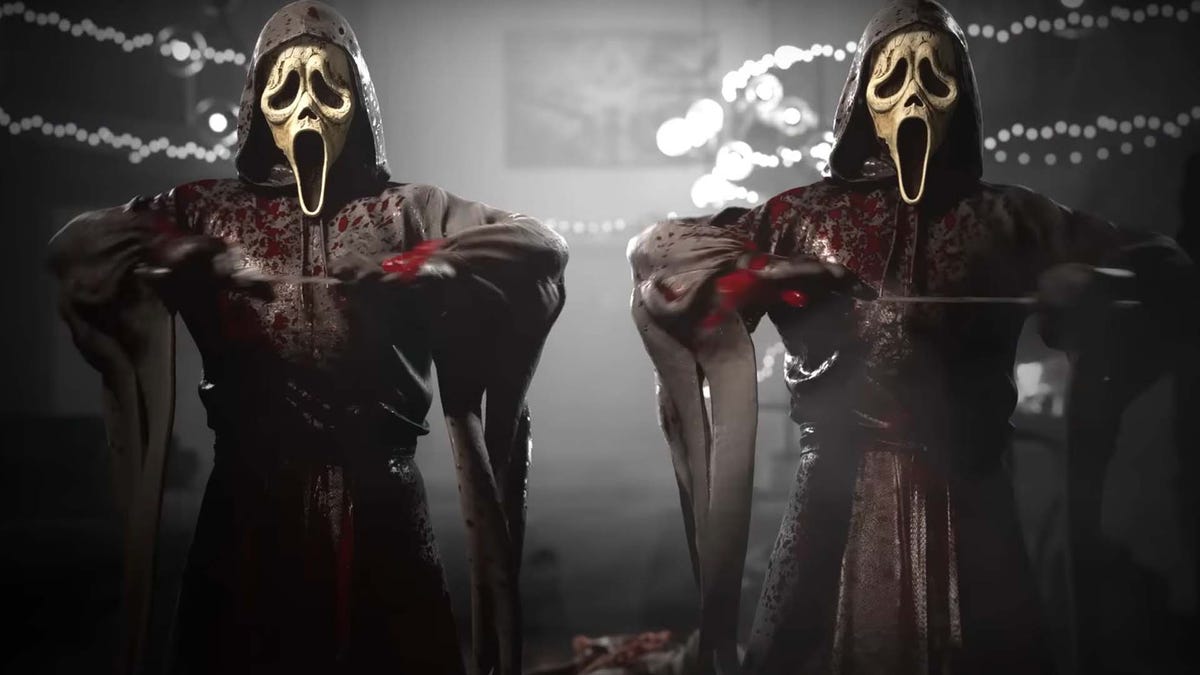On Monday, reigning world chess champion Magnus Carlsen made just one move against his opponent, American grandmaster Hans Niemann, and then resigned, sending the chess world into a crisis panic about a growing scandal with seemingly no resolution.
Carlsen’s refusal to play Niemann adds to speculation about Carlsens abrupt retreat from a tournament in St. Louis after losing to Niemann in early September and whether he believes Niemann is cheating. Carlsen did not explain his actions in St. Louis, nor in this week’s retirement, and as a result, tensions in the chess world have snowballed and caused divisions.
Carlsen is a five-time world champion and arguably the greatest chess player of all time. The 31-year-old Norwegian has been ranked number one in the world for over a decade, and his highest Elo rating (a scale used to measure the relative strength of players) of 2882 is the best in history.
Niemann is a 19-year-old American whose Elo rating has skyrocketed from 2484 in January 2021 to 2688 in early September since the pandemic. His meteoric rise has surprised and impressed the chess world, in turn raising suspicions of foul play.
In Round 6 of the Julius Baer Generation Cup, Carlsen was set to face Niemann in what would have been their first clash since Niemann defeated him earlier this month. But instead of playing, Carlsen moved his knight and then resigned and turned off his camera, silencing live commentators and causing a Twitter storm of opinion.
“This is unprecedented. I just can’t believe it,” said live commentator Tania Sachdev. “Magnus just refuses to play against Hans. He’s going to play the tournament, but he’s saying, ‘I’m not going to play the game against him.’ That is a very big statement.”
How did we get to this moment?
The day after Niemann defeated Carlsen in the third round at the Sinquefield Cup in St. Louis, Carlsen withdrew from the tournament before Round 4 tweeted an infamous clip of Portuguese football manager José Mourinho saying: ‘I really prefer not to speak. If I speak, I’m in big trouble.”
In the clip, Mourinho hints that a defeat was the result of a foul play. Many took the cryptic hint as a nod to Carlsen believing Niemann cheated when playing against him. The retreat was Carlsen’s first from a major event and a most unusual move by an elite player.
Other chess pieces weighed in, including popular chess streamer Hikaru Nakamura, who reacted live and revealed that there was a period of over six months when Niemann was unable to enter a cash prize tournament on Chess.com. That fact, coupled with his unusual rise over the past year and a half, led Nakamura to believe Carlsen’s actions were related to a distrust of Niemann’s competitive integrity.
“Am I saying that something happened? I’m saying Magnus is suspicious,” Nakamura said.
A few days later, Niemann decided to “tell his truth” and defend himself from his critics. He specified th at he actually cheated in online matches on Chess.com at ages 12 and 16, but denied ever cheating in over-the-board tournaments. He loudly denied any allegations of cheating during his game with Carlsen and even offered to play naked to prove he had no device to offer him outside help during the game.
Chess.com, the largest online chess platform, came out with a statement two days later, on September 8th, they announced that they would remove Niemann from Chess.com and not participate in future events on their platform, believing that Niemann’s public statement reflected “the extent and seriousness of his cheating Chess.com” misrepresented. ”
In the absence of hard evidence, the back-and-forth has inspired all sorts of theories as to whether Niemann cheated or whether Carlsen is just being paranoid after the loss. Theories have flourished too how Niemann could have cheated. Given Niemann’s willingness to play nude, some even did joked that Niemann discovered and stole Carlsen’s anal bead cheating method to obtain outside communications.
What does this mean for the future of chess?
Improved chess engines, which far outperform human chess players, have made it easier to cheat at chess, and there are still no clear ways to prevent or mitigate such cheating.
Chess engines are AI software that analyzes the board’s possibilities and forwards moves that produce the best results, and since 2017 they’ve gotten incredibly sophisticated. Corresponding The Atlanticchess engines became superhuman and accumulated Elo ratings in the 3000s. Stockfish, a public chess engine often used in chess commentaries to analyze possible moves, has an Elo rating of over 3500.
Cheating at online chess is incredibly easy; you only have to use a chess engine to guide moves. In person, however, in over-the-board tournaments, it’s more difficult. Players have consulted smartphones in the bathroom or worn devices that transmit input from a chess engine.
To catch cheating in chess at a lower level, all you have to do is find a player who is statistically impossible to outperform. But high-level chess players already know the optimal moves and would only need to consult a chess engine once or twice to turn a game. As a result, it is difficult to determine if a player is cheating cash to catch the player in the act.
In this case, Niemann was not caught cheating in an over-the-board match, and there is no concrete evidence that he cheated against Magnus Carlsen on September 4th. Although much has been said about Carlsen’s actions and their significance, he has yet to explicitly state whether he believes Hans Niemann is currently cheating and why.
Even the perception that someone is cheating changes the way an opponent plays. Chess engines like Stockfish suggest moves that seem unusual for a human player, and playing against someone you think is AI-assisted means you wonder why an unanticipated or visibly bad move was made became.
The scandal also points to the difficulty of prosecution ethics. Because Carlsen has not clarified his actions, and because Niemann has not been caught or proven to be cheating, the chess world’s opinion on both is in limbo. Carlsen’s essentially refusal to play another high-ranking player jeopardizes both Niemann’s career and Carlsen’s reputation. Does Carlsen have a responsibility to openly say he thinks Niemann is cheating and prove it? Should a track record of cheating exclude Niemann from opportunities to play against the best in the world?
“A man’s career, a man’s sanity is at risk. The legacy of the world chess champion and arguably the greatest player of all time is in jeopardy. The state of chess is in jeopardy,” said Levy “GothamChess” Rozman said.
Due to the folly of online discourse, many in the chess community have already taken sides, either dismissing Carlsen as a bad loser aiming to ruin a young man’s career, or urging Niemann to stop competing because of his history of cheating .
“Truth or lack thereof must be shown,” Rozman said. “We must hurry, folks; Time is running out.”
However, a solution does not seem to be in sight; If anything, the scandal could deepen with the possibility of Niemann and Carlsen meeting again in the knockout stages of the Generations Cup or at future tournaments.








